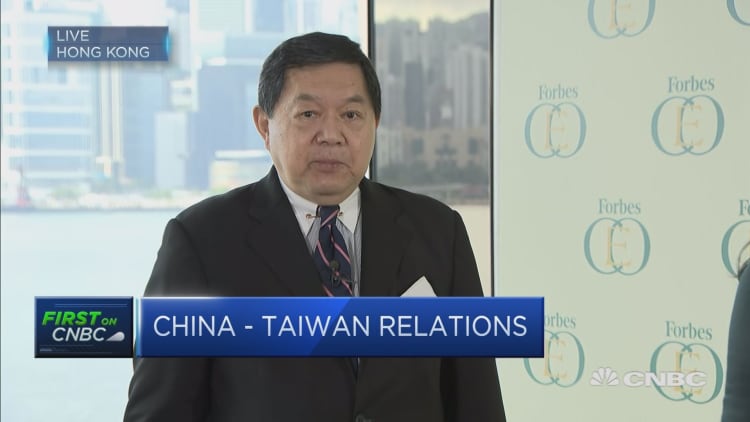The China-driven surge in commodity prices could soon come to an end, according to a private survey of Chinese businesses.
Contrary to "markets' unremitting faith in the Chinese government campaign to combat" oversupply in metals, "firms are saying quite the opposite. For the sixth quarter in a row, coal, aluminum, steel, and copper each saw capacity rise on net," according to the China Beige Book's early brief of third-quarter data released Tuesday.
"Sector-wide growth took a dive across the board—revenue, profits, output, export orders, volumes, hiring, capex, borrowing, wages, and sales prices," the report said.
The China Beige Book is a quarterly survey of Chinese companies in an attempt to present a more accurate picture of growth. Many question the accuracy of most Chinese government data, since officials may have incentive to inflate or deflate the figures they report in order to show compliance with central policy.

"There has been for the past year and a half a desire to not think too much about China," Leland Miller, chief executive officer of China Beige Book, told CNBC. "I think you're at a point right now where there's been a complacency on the part of the Chinese economy that is lending itself to unrealistic expectations about the economy that are not going to be met."
Copper prices have rallied more than 25 percent this year to a three-year high on bets for stronger global growth, primarily out of the world's second-largest economy, China. But the metal has since come off those levels to trade about 16.5 percent higher for the year.
Morgan Stanley echoed some of the China Beige Book's concern in a Monday report.
"So in fact, the strongest price performances of 2017 (aluminium, zinc, lead, copper, nickel, alumina, iron ore) are based on either China's reform-based supply shocks or global currency trades – not a sustained improvement in demand growth," equity strategist Tom Price and a team of analysts said. They have negative price forecasts on aluminum, copper, iron ore and steel.
Chinese companies aren't cutting back on credit
In its third-quarter survey of 3,300 firms and 160 bankers across 34 industries, the China Beige Book also found that companies borrowed at the second-highest rate in four years, contrary to widespread beliefs that China is reducing its use of credit to fuel growth.
"Most of the year when the Chinese government has been talking about deleveraging that has not been evidenced in China Beige Book data," Miller said. "At least part of the time corporations have had even easier access to capital and even when conditions have been tightening it has not contributed to deleveraging or slower deleveraging."
S&P Global Ratings downgraded China's long-term sovereign credit rating to A+ from AA- last week based on "increased" risks to the economy and financial system from China's "strong credit growth." The move followed a similar downgrade by Moody's in May.
"We are still very concerned about China's debt growth" but Chinese authorities have made a "good start" in limiting credit growth, James Daniel, assistant director of the Asia and Pacific Department at the International Monetary Fund, told CNBC Monday.
The big question, he said, is "will the government continue with this [deleveraging] if and when the economy begins slowing?"
That said, China's economy remains one of the fastest growing in the world. The IMF said in August that it expects the world's second-largest economy to average growth of 6.4 percent a year between 2017 and 2021, versus 6.0 percent last year.
The China Beige Book brief also said that while the third quarter was weaker than the second, 2017 overall "still looks far better than 2016 and much of 2015."
"Profits are much better than last year, with even property contributing to that for the moment. Most importantly, hiring remains robust," the report said. "The worry is not how the economy is faring now, but where it is headed."


